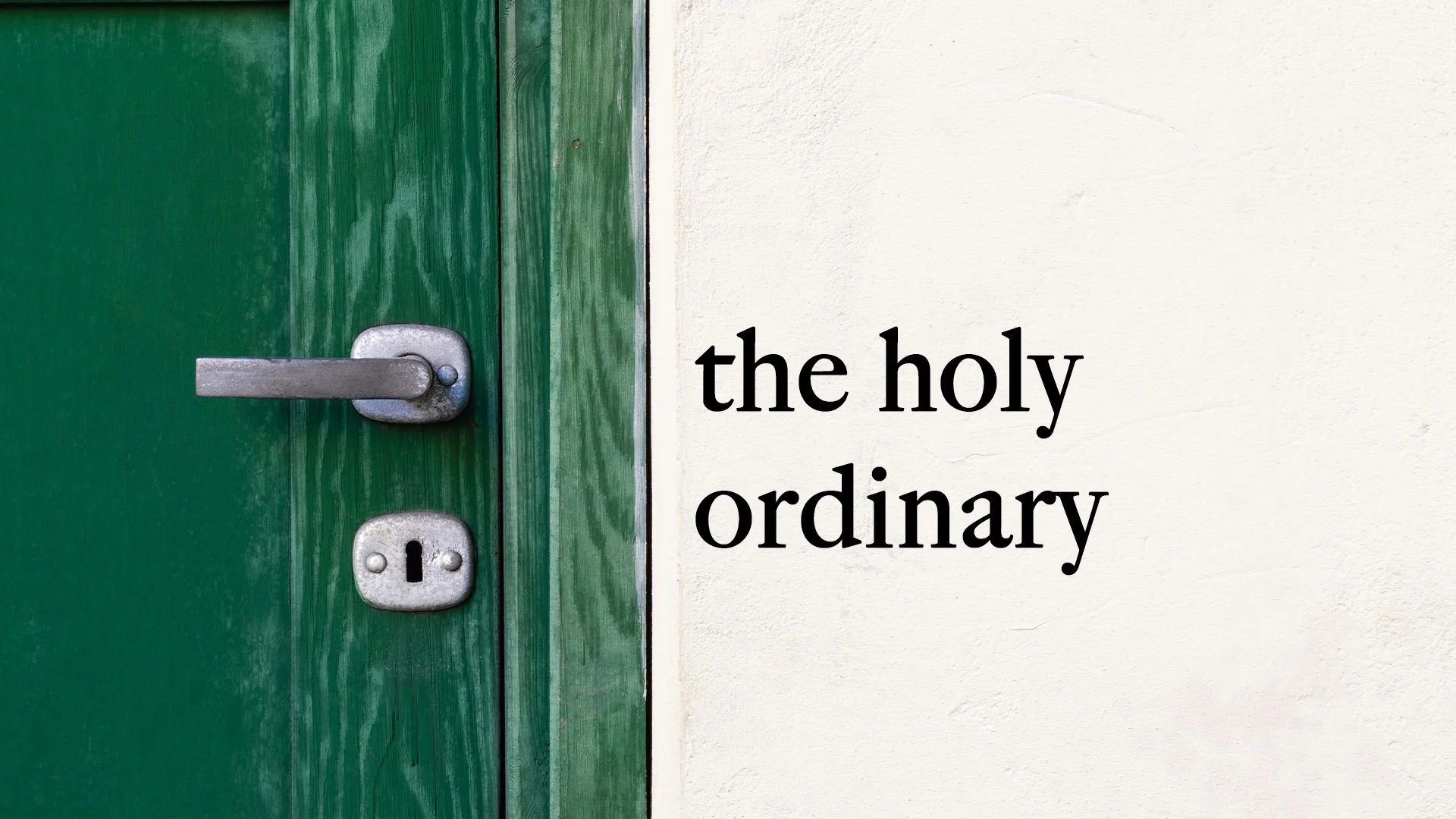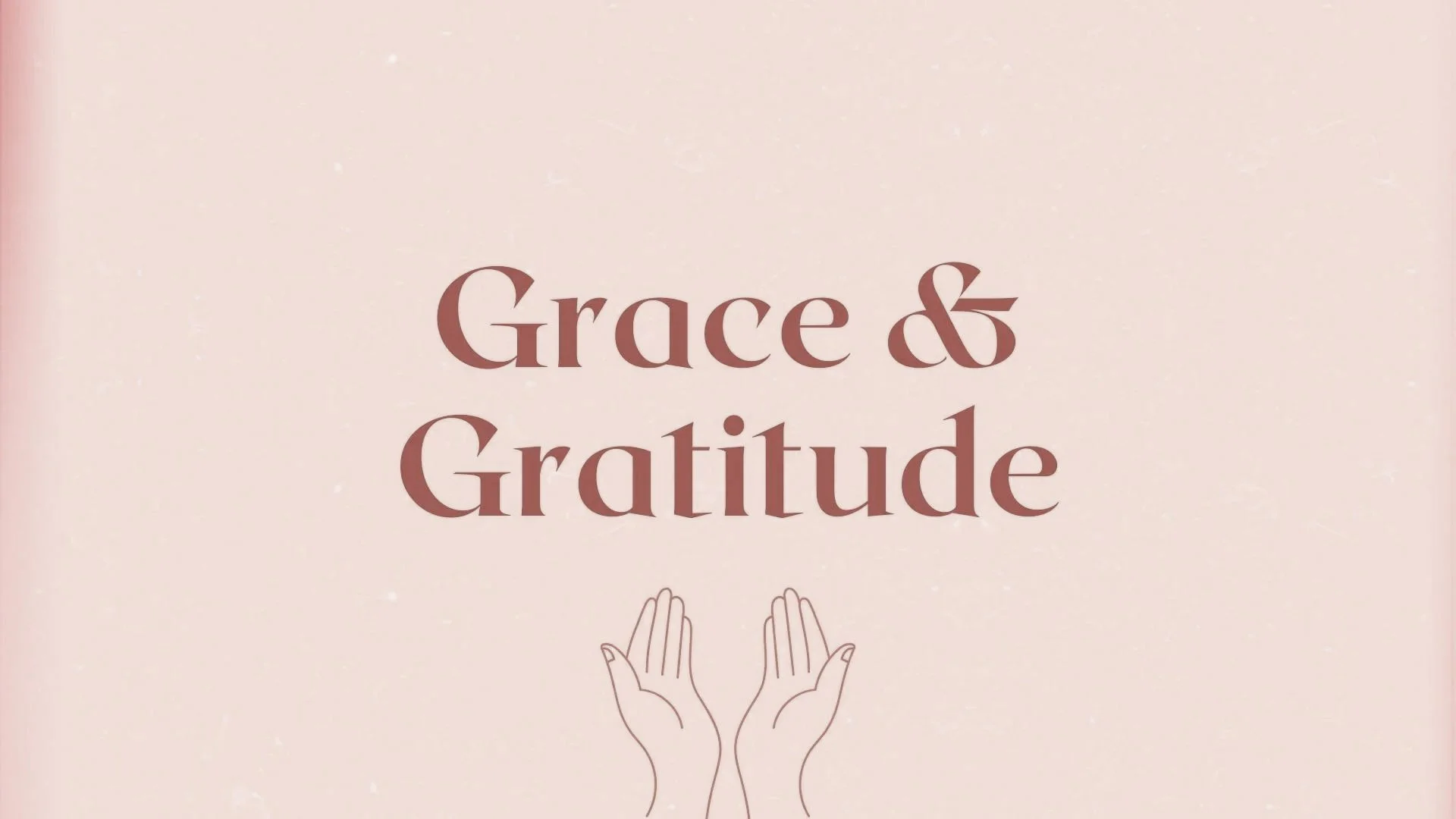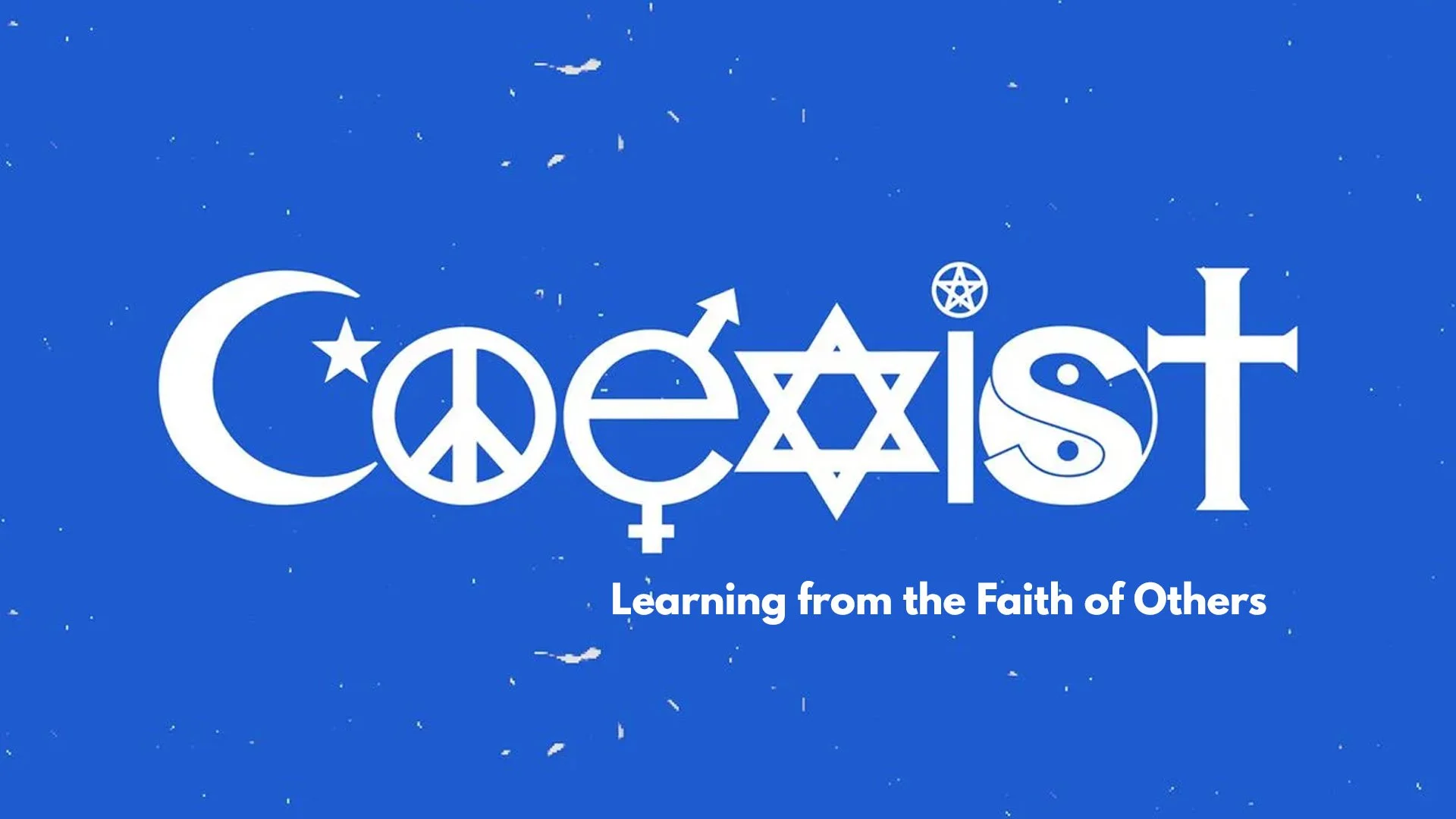Fellow Travelers
The Emmaus story teaches us about walking through confusion with companions. Sometimes Christ shows up disguised in the stranger, the immigrant, the unexpected ally. The disciples didn't recognize Jesus until he broke bread - salvation often comes through those we least expect. In our dark seasons, we discover who shows up versus who disappears, learning to build unlikely coalitions across difference. Jonathan Martin writes about "fellow shipwreck survivors" who understand without needing to solve everything. This week we explore the art of presence without answers, learning skills for authentic community that can handle both political disagreement and personal uncertainty. We discover how to ask for help and how to offer it, embracing mystery as transformation space rather than threat. Sometimes the most sacred thing we can do is simply walk alongside one another without having all the answers, trusting that Christ joins us on the road even when we don't recognize his face.
When the Lights Go Out
Life has a way of turning the lights out on our carefully mapped plans. Job loss, diagnosis, relationship breakdown, political upheaval - moments when the vessel we were counting on breaks apart. Abraham was called to leave the familiar empire for an unknown promise, trading sight for trust. Ash Wednesday reminds us we are dust - our carefully constructed plans are fragile. But this isn't cause for despair; it's invitation to discover that God's guidance doesn't require our vision. Sometimes the most faithful thing we can do is take the next right step without needing the whole staircase illuminated. Kate Bowler's wisdom rings true: "I can't see the plan, but I can see the next right thing." This week we explore how to move forward with trust when sight fails us, learning that God's call often leads us into uncertainty precisely because that's where faith becomes real.
Loving Your Actual Life — Real Love in Real Time
Valentine's Day weekend arrives with its annual prescription for perfect romance: candlelit dinners, flawless relationships, love that looks like a greeting card. But what about the other 364 days? What about love that
God in the Groceries
In a world that promises the sacred only comes through special moments—retreats, worship services, spiritual highs—Brother Lawrence discovered something revolutionary: God is as present in the monastery kitchen as in the chapel. This 17th-century monk developed what he called "practicing the presence of God" while washing dishes and preparing meals, learning to find the divine in the most mundane tasks.
We live much of our lives in grocery stores of the soul—routine tasks, daily commutes, endless errands that feel anything but holy. But what if these aren't interruptions to the spiritual life but the very place where it happens? When we learn to pay attention, the grocery store becomes a cathedral: we notice the hands that grew our food, the systems that brought it to us, the abundance that surrounds us, the neighbors we encounter in every aisle.
This isn't about adding more spiritual practices to an already busy life; it's about discovering that presence itself transforms ordinary moments into encounters with God. Whether folding laundry, stuck in traffic, or yes, wandering the cereal aisle, we can learn Brother Lawrence's secret: that there is no moment too small, no task too mundane, no place too ordinary to practice the presence of the One who is with us always.
The goal isn't perfection but attention—learning to notice God's fingerprints on the everyday moments that make up most of our lives. In a culture that constantly pulls us toward the next thing, the practice of presence invites us to discover the sacred right where we are.
Learning
This is usually the week we abandon our resolution to read more books and just buy more books instead. But what if learning isn't about self-improvement projects or productivity hacks? Biblical wisdom celebrates the lifelong learner—not because knowledge makes us better people, but because curiosity is a spiritual discipline that keeps us growing in wisdom and wonder. Jesus himself grew in wisdom, always asking questions, always learning. The goal isn't to hack our learning but to let learning change us. There's a difference between information accumulation and transformation, between collecting knowledge and cultivating wisdom. In a world obsessed with optimization, we're invited into the slower work of wonder—learning from failure, staying teachable regardless of age, and discovering that our neighbors (especially those different from us) have wisdom we need. The beginner's mind isn't just humble; it's holy, opening us to the ongoing revelation of God in every conversation, every setback, every surprising moment of growth.
The Shepherds and the Scandal of Divine Hospitality
When God wanted to announce the birth of the Messiah, who got the invitation? Not the religious authorities or political leaders or wealthy elite. God went straight to the shepherds—the people considered too unclean for temple worship, too untrustworthy for legal testimony, too marginal to matter. Their inclusion wasn't an afterthought or an act of charity; it was a declaration that God's hospitality is scandalous, consistently choosing those whom human systems exclude. The shepherds' story reveals that God doesn't just work through the unexpected—God prefers the overlooked, the marginalized, the people who know most intimately what it means to need good news. As we prepare for Christmas, their story challenges us to examine our own guest lists and discover what radical welcome might look like in our lives and communities.
Joseph And The Challenge Of Not Mansplaining
Joseph faced an impossible situation: his fiancée was pregnant, and he knew he wasn't the father. He had every cultural and religious right to publicly divorce Mary and protect his reputation. Instead, Joseph did something revolutionary—he chose to believe Mary's experience rather than explaining it away. He walked alongside rather than taking charge. He offered presence without trying to control the narrative. In a culture that often teaches men (and anyone with privilege) that their value comes from being the expert with all the answers, Joseph models a different way: the courage to listen, the wisdom to trust someone else's truth, and the strength to support rather than lead. His story challenges all of us to examine where we might need to practice the ministry of presence instead of the ministry of having all the answers.
Magnificat and the Revolutionary Power of "Yes, And..."
For too long, Mary has been portrayed as the perfect example of quiet submission—saying yes to God and then fading into the background. But that's not Mary's story at all. Mary doesn't just say "yes" to God's invitation; she says "Yes, and..." and then offers one of the most radical visions of justice in all of scripture. Her Magnificat isn't gentle spiritual poetry—it's revolutionary theology that declares God's intention to turn the world's power structures upside down. Mary shows us that faithful discipleship doesn't mean losing ourselves or staying quiet about injustice. Instead, it means bringing our whole selves—our dreams, our questions, our passion for justice—to the collaborative work of transformation. This week, we explore what it means to say "Yes, and..." to God and discover our own prophetic voice.
Gratitude Is Noticing God
"Every generous act of giving, with every perfect gift, is from above, coming down from the Father of lights, with whom there is no variation or shadow due to change."
Most of life's essential work happens beneath the surface, unseen but absolutely vital—like the vast underground networks that connect trees, sharing nutrients and information across entire forests. Gratitude is learning to notice this hidden web of grace that sustains everything. When we practice gratitude, we're not just counting blessings; we're participating in recognizing God's active presence all around us. The Greek word for gratitude, eukharistia, shares the same root as grace—kharis—God's unmerited favor at work in our world.
When we choose a perspective of gratitude, we're literally noticing God at work through infinite vessels in countless ways. Even in hard seasons, even when the surface looks barren, there's an underground network of grace sustaining life, connecting us all, inviting us to dig a little deeper and see the abundance that surrounds us. This isn't about denying problems but recognizing that even now, grace is present, love is active, and God's transforming work continues in ways we might miss if we're not paying attention.
Legacy Sunday
Life isn't an individual event—it's a team event, a human event, and we're in this together with each other and for each other. Even more, we're in this with those who came before, who handed us the baton of this great race, and with those who will come after and carry on the work. The first followers of Jesus had a word for those people—hagias, saints—not stained glass perfection, but those who have been used by God for good in our lives, for love, life, and liberation.
The author of Hebrews paints this beautiful picture: "Therefore, since we are surrounded by so great a cloud of witnesses, let us run with perseverance the race that is set before us." These are the people who have run the race before us, caught their breath, and are cheering us on right now. The Greek word "surrounded" means being bound up together—their lives are interwoven in ours, surrounding us and woven into who we are.
We don't get to choose what part of the race is set before us, but we get to choose how we run. At this church, we stand on the shoulders of those who faced great obstacles and oppression—inclusion advocates, integration pioneers, saints who opened doors we walk through today. They could not have imagined what God was doing, just like we can't imagine where our race will lead.
We run in honor of those who have gone before and for the sake of those who will come after, pursuing God's dream of justice, joy, and peace with courage, creativity, and conviction. May we run our leg of this great relay with perseverance, knowing we're surrounded by that great cloud of witnesses.
The Bible On Broadway: The Wizard Of Oz
What if Dorothy’s journey teaches us that we don’t need to escape to find home—we need to learn to see it? Exploring The Wizard of Oz and Jesus’ radical message that “the kingdom of God is at hand,” we discover how blessing our actual lives (not our #blessed lives) helps us see the color beneath the grey. What if Kansas was never actually grey—it was just painted over? Let’s learn to see the wonder right where we are. Part of our “Bible on Broadway” series.
Sacred Reciprocity
Indigenous wisdom about living in sacred reciprocity with creation, honoring the interconnectedness of all life, and understanding the earth as gift rather than resource offers profound insights for our ecological and spiritual lives. Drawing from voices like Robin Wall Kimmerer's Braiding Sweetgrass, we'll explore Indigenous teachings about gratitude, the Seven Generations principle, and seeing creation as relative rather than property.
After acknowledging our presence on land originally stewarded by the Caddo Nation and other tribes, we'll discover how Indigenous wisdom about creation care resonates deeply with the biblical vision of humans as caretakers rather than owners of God's earth. While honoring Indigenous traditions' beautiful emphasis on living in right relationship with the natural world, we'll explore how Jesus, who spoke of God's care for sparrows and lilies, calls us into the same sacred reciprocity—receiving creation as gift and responding with grateful stewardship for the healing of the world.
Wrestling and Covenant
Judaism, the tradition that gave birth to Jesus's own faith, offers profound wisdom about wrestling with God, arguing with the sacred, and finding identity in covenant relationship rather than perfect understanding. We'll explore Judaism's emphasis on doing justice, pursuing questions, and trusting in God's steadfast love (hesed) that remains faithful even through our struggles and doubts.
The connections between Passover and communion reveal how Jesus, deeply rooted in Jewish tradition, opened the covenant of God's liberating love to include all people—a work that continues today as we gather around tables across the globe on World Communion Sunday. While honoring Judaism's beautiful emphasis on this-worldly justice and communal wrestling with faith, we'll discover how Jesus resonates with the deepest promises of the Hebrew scriptures, extending God's steadfast love to embrace every seeking heart. Jewish wisdom about questioning and justice-seeking can inspire our own courage to wrestle with God and work for the inclusive world God dreams.
Coexist: Islam (Surrender and Justice)
Islam's core message of surrender (Islam means "submission") to the One God who is "merciful and compassionate" offers profound wisdom about devotion, prayer discipline, and commitment to justice for the vulnerable. We'll explore the Five Pillars of Islam and discover how our Muslim neighbors' dedication to daily prayer, charitable giving, and pilgrimage reflects both beautiful wholehearted devotion to God and faith expressed through concrete practice.
While appreciating Islam's emphasis on surrendering to God's will through faithful action, we'll explore how this resonates with Jesus's teachings about loving God with all our heart, soul, mind, and strength. Through Muslim wisdom about justice, surrender, and faith in practice, we can deepen our own commitment to lived discipleship, while discovering how Jesus embodies the merciful, compassionate character of God that our Muslim neighbors teach us.
The Path of Compassion
Buddhism's profound teachings about releasing the ego's demands, practicing mindfulness, and cultivating compassion offer wisdom that resonates deeply with Jesus's call to "lose your life to find it." We'll explore the Buddha's Four Noble Truths and the Eightfold Path, appreciating Buddhism's emphasis on intentional spiritual practice and its beautiful insight that suffering often comes from grasping too tightly to impermanent things.
While honoring Buddhism's distinctive approach to liberation through the extinguishing of desire, we'll discover how Jesus offers a different path—not the elimination of the self, but the discovery of our true selves in relationship with the God who created us for love. Through Buddhist wisdom about mindfulness and compassion, we can deepen our own practices of prayer and service, while sharing how the God we know in Jesus offers permanent love in an impermanent world.
Fellow Travelers & Sacred Light
Paul's encounter at the Areopagus establishes a profound model for interfaith engagement: approaching other traditions with appreciation rather than condemnation, recognizing that all humanity is "searching for God," and trusting that divine presence is already at work in every seeking heart. Using this framework, we explore Hinduism as a case study in learning from our neighbors' faith wisdom.
Hindu concepts like "namaste" (the God in me bows to the God in you), yoga as union with the divine, and the beautiful diversity between jnana (knowledge) and bhakti (devotion) paths offer insights that resonate with Christian teachings about seeing Christ in others and finding our identity in relationship with God. Through figures like Gandhi, whose "satyagraha" (soul force) influenced Dr. King, we discover how Hindu wisdom about holding fast to truth can deepen our own commitment to justice and nonviolence.



















